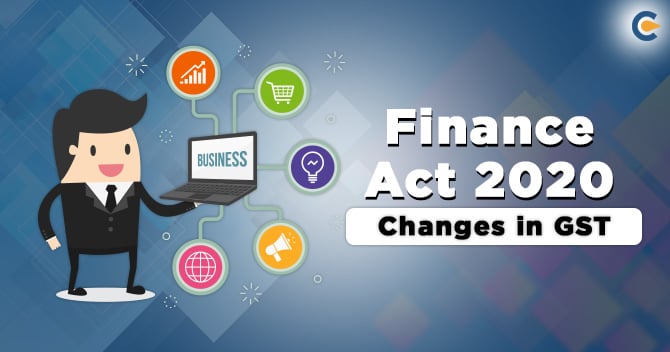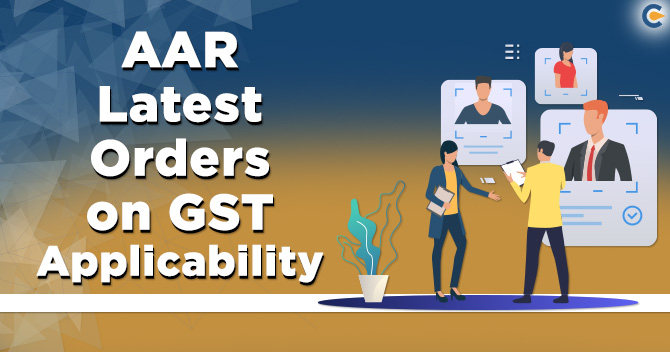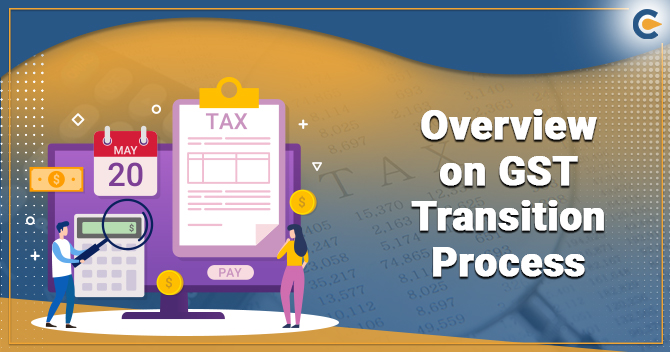In the Budget Presented on 01st February 2020, there were many changes proposed in Income Tax and GST. As compared to Income Tax Law, there were very fewer changes in GST for a reason, and changes are frequently coming in GST law via notifications. In this article, we are covering the Finance Act 2020 – changes in GST proposed in Budget 2020 and their analysis in detail.
Summary Table to Reflect Changes in GST
Before going in detail, here is the summary table for all the important changes in GST being made:
|
Section |
Subject |
Comments |
|
Section 2(114) |
Union Territory |
The Definition is proposed to be updated since New J&K Reorganisation Act 2019 and Merger of Union Territories Act 2019 is coming into force. |
|
Section 7 |
Supply ( Schedule II ) |
Retrospective w.e.f 01.07.2017-Para 4(a) and Para 4(b) of Schedule II rectified. |
|
Section 10 |
Composition Scheme |
To harmonize the conditions specified under two schemes covered under Section 10, 10(2) is proposed to amended to get it to align with 10(2A) |
|
Section 16(4) |
Time limit to avail ITC |
No longer linkage between availing of ITC of Debit Note to the year of Issuance of underlying Tax Invoice. |
|
Section 29 |
Cancellation of Registration |
Voluntary Registered person can apply for cancellation if he is no more liable to get registered as per Section 22 or 24 |
|
Section 30 |
Revocation of Cancellation of Registration |
Proviso added in Section 30(1) to give power to tax authorities to extend the date for application for revocation of cancellation of registration inappropriate & reasonable cases. |
|
Section 31 |
Tax Invoice |
To enable the government to specify the manner of E-Invoicing. |
|
Section 51 |
TDS |
Section 51(3) amended so that the TDS certificate can be furnished by the common portal, and Section 51(4) Omitted to delete provision for late fees. |
|
Section 109 |
Appellate tribunal Constitution |
For setting up the tribunal in Union territory of J&K and Ladakh. |
|
Section 122 |
Penalty |
Subsection 1(A) is proposed to be inserted to make real beneficiaries liable to the penalty |
|
Section 132 |
Prosecution |
Amended to provide that offense of availing of ITC without bills/Invoice, a cognizable and non-bailable offense. |
|
Section 140 |
Transitional Provisions |
Amended to provide that grant of transitional credit shall be subject to conditions and limitations as prescribed. Amendment proposed retrospectively |
|
Section 168 |
Orders, instructions, directions to GST Officers |
Power for fixation of special audit expenses and also the power of extension of time limit for bringing back the goods sent to job worker shall be exercised by the jurisdictional Commissioner. |
|
Section 172 |
Removal of Difficulty |
Time limit extended from 3 years to 5 years. |
Definition of Union Territory
“Union Territory means the territory of : –
- The Andaman and Nicobar Islands,
- Lakshadweep
- Dadar and Nagar haveli and daman and diu, Ladakh
- Chandigarh
- Other territory
Analysis – Merger of Union Territories Act, 2019 has been passed, and it is for this reason that changes in GST Act are done to align itself with the merger. This is made to reduce duplication of services and reduce the cost of administration.
Also, after the passing of the J&K Reorganisation act, 2019, State of J&K is now reconstituted into 2 Union territories- J&K and Ladakh. Since J&K has its own legislature, it shall be included in the Definition of state, and Ladakh needs to be included in the Definition of Union Territory.
Supply
Supply includes:
- All forms of supply of goods or services or both such as sale, transfer. Barter, exchange, license, rental, lease, or disposal :
- Made or agreed to be made for a consideration
- By a person
- In the course or furtherance of business
- Importation of services for a consideration whether or not in the course or furtherance of business.
- Activities specified in Schedule I, made or agreed to be made without a consideration
Changes in GST have been brought in Schedule II of the CGST Act w.e.f 01.07.2017. Entries at 4(a) and 4(b) relating to the transfer of business assets made without consideration have been amended. The words ‘’Whether or not for consideration ‘’ have been deleted.
Analysis: Schedule II provides for the determination of status, whether any activity is to be treated as a supply of goods or supply of service. But where an activity is not treated as a supply as per Section 7(1)(c) and Schedule I, the question of determination of status does not arise.
For example, An asset on which ITC was not taken is donated to a school without any consideration. Now since this activity does not supply, no question to determine its status as a supply of goods or supply of service arises. Therefore the words as mentioned above are deleted in entries 4(a) and 4(b) to bring that in alignment with Section 7 Schedule I.
Read our article:Pragmatic Impact of GST Rate on Indian Economy
Composition Scheme- Section 10
Eligibility – The registered shall be allowed to opt for composition scheme subject to below-mentioned conditions:
- Save as otherwise provided in subsection (1); he is not engaged in the supply of SERVICES
- He is not making any supplies of goods or SERVICES which are not liable to tax under this Act
- He is not making any Interstate State outward supplies of goods or SERVICES
- He is not making any supplies of goods or SERVICES through an electronic commerce operator who is required to collect tax at source under section 52
- He is not a manufacturer of such goods as notified (Tobacco and Manufacturing tobacco substitutes, Ice cream and other edible ice whether or not containing cocoa, Pan Masala, Aerated Water.)
- The taxable person opting to pay such tax is not allowed to collect tax on outward supplies from the recipient
- No credit of Input Tax Credit can be taken.
- Not applicable to Casual taxable persons or non-resident taxable persons.
Analysis: The composition scheme usually covers two schemes under Section 10. Conditions for opting compositions scheme is mentioned under Section 10(2) and Section 10(2A). Changes in GST in Section 10(2)(b),(c),(d) is made to bring it in harmony with conditions specified in Section 10(2A). Therefore the word ‘’SERVICES’’ is added.
Section 16(4): Time Limit to Avail ITC
As per Section 16(4), the time limit to claim ITC is earlier of:
- Due date to file the return for the month of September of the next financial year to which Invoice pertains or Invoice relating to such debit note pertains
- Due date of filing Annual Return.
- The words “Invoice relating to such “are now omitted.
Analysis: Changes in GST is brought to allow credit relating to debit not irrespective of the date of issuance of Invoice related to debit note (Underlying Invoice)
Example: Invoice date is 20.01.2020 and Debit Note Date is 20.05.2020
Time Limit to claim ITC as per Section 16(4) :
- Relevant Financial year to which Invoice pertains: F.Y 2019-20
- Relevant Financial year for debit note :
- Existing Provisions: F.Y 2019-20 ( F.Y to which Invoice relating to such debit note pertains )
- Amended Provisions after changes in GST: F.Y 2020-21 ( F.Y to which debit note pertains )
Cancellation of Registration – Section 29
- Section 29 deals with cancellation of registration on suo moto basis by the proper officer or upon receiving application by the registered person.
- Claus (c) of subsection (1) is amended to provide that that taxable person (Voluntarily Registered), who is no longer liable to be, registered as per section 22 or 24 or who intends to opt-out of the registration voluntarily made under section 25(3).
Analysis: Earlier, a registered person who wishes to get de-registered on account of Aggregate Turnover being less than the prescribed limit was not allowed to apply for Deregistration as per section 29(1)(c).Finance Act 2020 has brought a change in GST to amend Section 29(1)(c) to allow them to apply for Deregistration, i.e., cancel their existing registration, which was done voluntarily.
Revocation of Cancellation of Registration- Section 30
- It simply means applying for renewal of registration once it is canceled.
- As per Section 30, a registered person whose registration is canceled is allowed to apply for the revocation of his canceled registration.
- Existing time limit to apply for revocation is within 30 days of serving of cancellation order.
- Changes in GST is implemented to increase this limit of 30 days in reasonable cases
- The power to grant an extension is with Additional Commissioner or the Joint Commissioner or Jurisdictional Commissioner
- The first extension up to 30 days can be given by AC OR JC, and further extension up to 30 days can be granted by Jurisdictional Commissioner.
Tax Invoice- Section 31
- As per the existing provisions of Section 31, In respect of invoicing for goods, govt has the power to prescribe the manner of invoicing. But in respect of invoicing for services, no power is prescribed for the manner of invoicing to be done.
- Change is GST is being brought in by Finance Act 2020, and proviso to Section 31(2) is being substituted to enable the government to mandate manner of invoicing for Supplier of Services.
Analysis: Keeping in view the introduction of E-Invoicing, the government has brought changes in GST with respect to the manner of invoicing for the supplier of services. The government now has the power to prescribe the manner of invoicing with respect to both Goods and Services.
Tax Deduction at Source- Section 51
- Earlier, Section 51(3) of the CGST Act[1] provides that the deductor needs to issue a certificate of TDS to the deductee.
- The time limit to issue such certificate is within 5 days of the crediting the TDS to the government; otherwise, late fees were charged.
- Finance Act 2020, has done away with the requirement of late fees for delay in issuance of TDS Certificate. Section 51(4) is amended with this respect.
Analysis: Since there was difficulty in compliance and non-issue of TDS certificate. This difficulty was resolved by making the certificate a system generated certificate which can be downloaded. Therefore the late fees provisions are made away with.
Appeal to GST Appellate Tribunal- Section 109
- Section 109(6) Provides that C.G. has the power to notify state bench who shall have the power of appellate tribunal within the concerned state.
- However, C.G. will not be constituted the state bench for the state of J&K
- Now after the passing of J&K Reorganisation Act, 2019, it is now decided that C.G. will now be constituting the state bench for the Union Territory of J&K and Union Territory of Ladakh
Penalties of Certain Offences – Section 122
- This Section deals with Penalties charged for certain offenses.
- Finance Act 2020 has made an insertion by subsection (1A) in Section 122, making any person who retains the benefit of the transaction liable for the penalty.
- Such transactions are :
- Supplying of goods or services or both without the issuance of Invoice or issuance of incorrect Invoice
- Issue of any invoice or bill without supply of goods or services or both.
- Claiming of ITC without actual receipts of goods or services
- Claims or distributes credit in violation of Section 20.
Analysis: To impose the penalty on the person who in reality gets the benefits of above-mentioned transactions, changes in GST are made under section 122 by inserting a new subsection 1(A)
Similar changes are brought in Section 132 to prosecute the actual beneficiary.
Power to Issue Instructions /Directions –Section 168
- Section 168 empowers CBIC to issue circulars to ensure uniformity in the implementation of the Act.
- Finance Act 2020 has brought in changes in GST in Section 168 to align the intent with the words of the Section, and therefore, Special Audit Expenses shall now be determined and fixed by the Jurisdictional Commissioner.
Removal of difficulties- Section 172
- Section 172, provides that if there is any difficulty in the implementation of GST, special provisions may be made for removing the difficulty.
- Earlier Removal of difficulty order can be issued up to 3 years from the date of commencement of GST.
- Finance Act 2020 has amended the Section to provide the Removal of difficulty order can now be passed with 5 years from the commencement of GST.
Conclusion
All the changes mentioned above in GST are note worthing and essential. Since GST is still into the infant stage, changes in GST are coming quickly by way of notifications, clarifications, circulars etc. Finance Bill, which proposed the changes as mentioned above in GST, was passed in both the houses and became Finance Act 2020.
Read our article: GST Taxpayers can file their GSTR-3B Returns in an easy way











